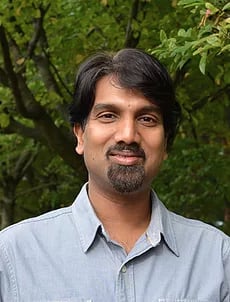Date: Tuesday, 25 October 2016, 10 am (Manila Time)
Abstract
Over the last decade, our research team has investigated the dynamic responses and global properties of living cells using systems biology approaches. More specifically, we have developed computational models and statistical techniques to interpret instructive cell signaling and high-throughput transcriptome-wide behaviors of immune, cancer, and embryonic development cells. Here, I will focus on our recent works in overcoming cancer resistance. TRAIL (tumor necrosis factor related apoptosis-inducing ligand), a proinflammatory cytokine, has shown promising success in controlling cancer threat due to its ability to induce apoptosis in cancers specifically, while having limited effect on normal cells. Nevertheless, several malignant cancer types, such as fibrosarcoma (HT1080) or colorectal adenocarcinoma (HT29), remain non-sensitive to TRAIL. To sensitize HT1080 to TRAIL treatment, we developed a dynamic computational model based on perturbation-response approach, to predict a crucial co-target to enhance cell death. The model simulations suggested that PKC inhibition together with TRAIL induce 95% cell death. Subsequently, we confirmed this result experimentally utilizing the PKC inhibitor, bisindolylmaleimide (BIM) I, and PKC siRNAs in HT1080.
 Kumar Selvarajoo, PhD
Kumar Selvarajoo, PhD
Associate Professor,
Institute for Advanced Biosciences (IAB),
Keio University, Japan
http://www.iab.keio.ac.jp/en/about/kumar-selvarajoo/index.html
About the Speaker
Kumar Selvarajoo had been an Associate Professor in Systems Biology at the Institute for Advanced Biosciences (IAB), Keio University, Japan. Prior to moving to Japan, Dr Selvarajoo worked at A*STAR’s Bioinformatics Institute as a Project Leader. He obtained a PhD in Computational Biology from the Nanyang Technological University, and a direct Master of Engineering (Aeronautics) from the Imperial College of Science, Technology & Medicine, London. Selvarajoo has led a research team that pioneered several computational and statistical approaches, and had utilized experimental methodologies to tackle the dynamical complexities of immune, cancer and developmental cells. In particular, he has used original ideas, utilizing fundamental physical and statistical laws, to investigate time-series and multi-dimensional biological datasets. Selvarajoo has authored over 50 scientific articles, largely as the corresponding author, which includes a single-authored book on Immuno Systems Biology (Springer, US) and 2 letters for the journal Science. He currently serves the editorial board of Scientific Reports (Nature Publishing Group) and In Silico Biology (IOS Press) journals. Overall, Selvarajoo has wide international academic experience and reputation (Singapore, UK & Japan), and enjoys adapting to differing working environments and cultures.
TO JOIN THIS WEBINAR: Send an email to: rsbacsa@up.edu.ph and ask for the weblink.
